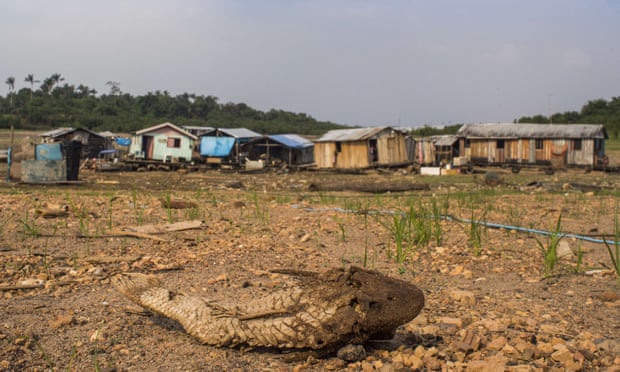
A dead Bodó fish in front of stranded floating houses on the bed of Negro River, a major tributary of the Amazon River, during a drought in 2015. Photograph: Raphael Alves/AFP/Getty Images
CLICK HERE - ipbes - Biodiversity and Nature’s Contributions Continue Dangerous Decline, Scientists Warn
Unsustainable exploitation of the natural world threatens food and water security of billions of people, major UN-backed biodiversity study reveals
theguardian.com - by Jonathan Watts - March 23, 2018
Human destruction of nature is rapidly eroding the world’s capacity to provide food, water and security to billions of people, according to the most comprehensive biodiversity study in more than a decade.
Such is the rate of decline that the risks posed by biodiversity loss should be considered on the same scale as those of climate change, noted the authors of the UN-backed report, which was released in Medellin, Colombia on Friday.
Recent Comments